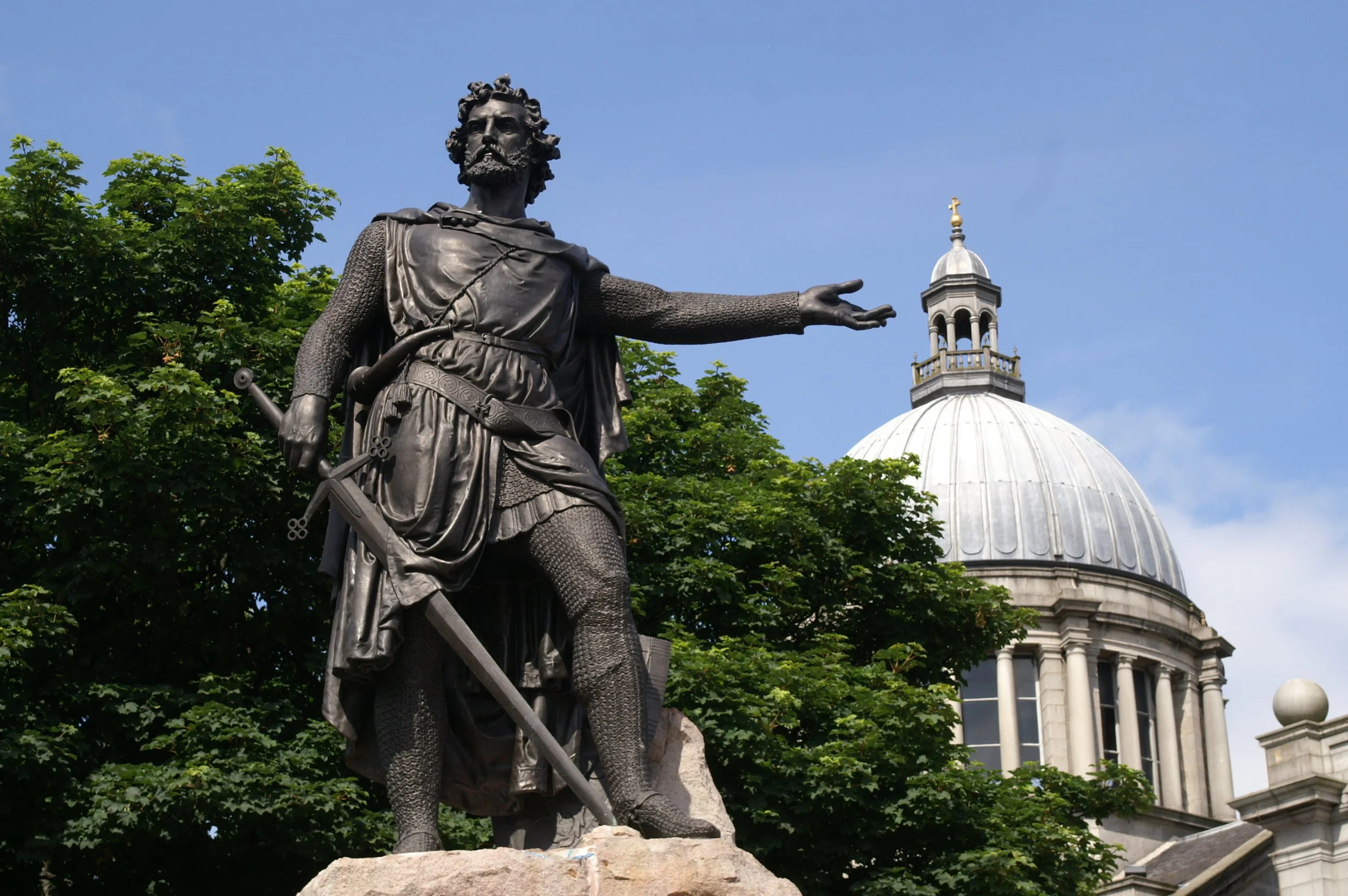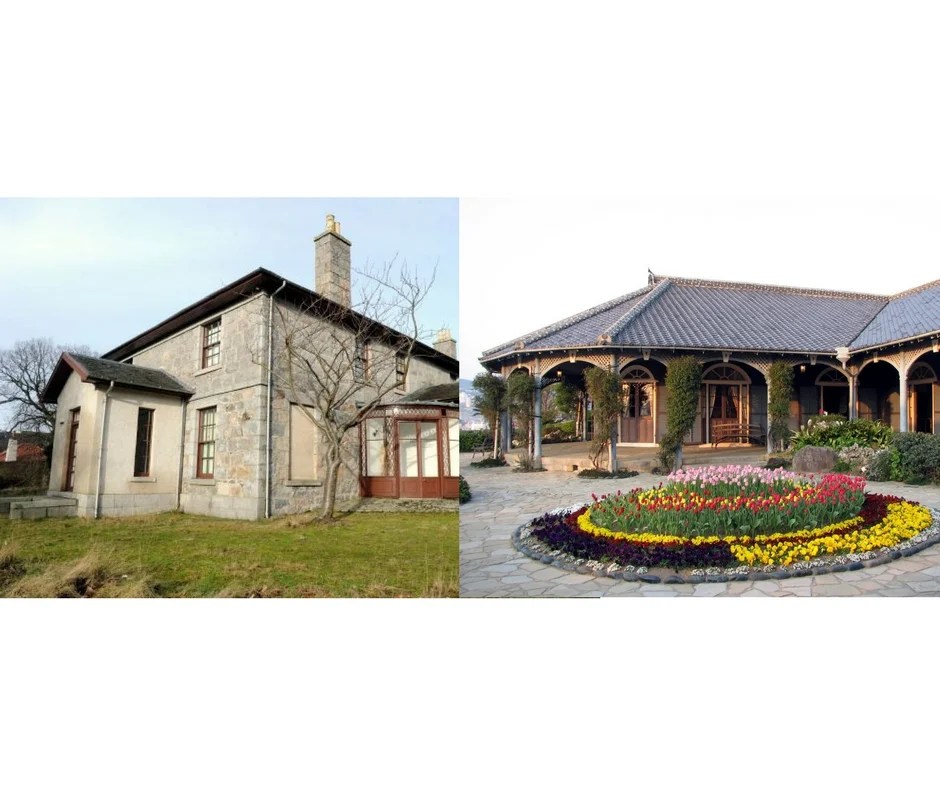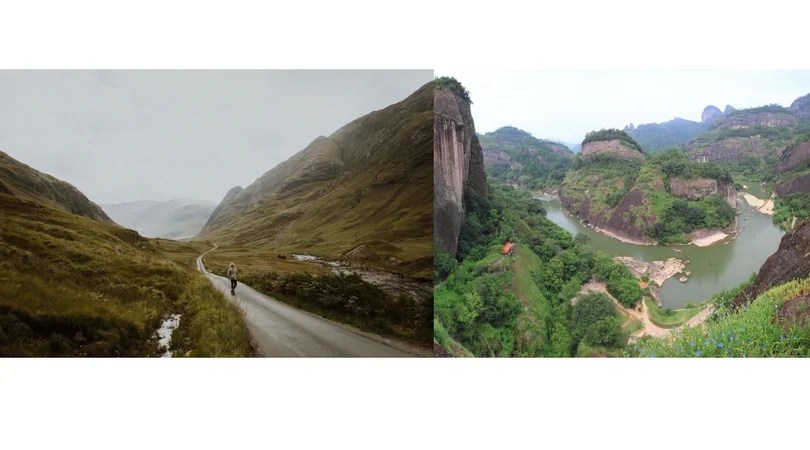
“Audentes Fortuna Adiuvat” – So states the tattoo inscribed on the back of John Wick, number one in the doggo revenge business.
This latin phrase is widely used by various military organisation of the Anglo-Saxon world; the United States and the United Kingdom using it the most.
A similar motto so often remembered from the Special Air Service is “Who Dares Wins”. The S.A.S. being the brainchild of a rather eccentric Scotsman David Stirling. A Scot amongst a long line of those marked in history.
Throughout the the english speaking world the Scots, despite their sparse population, general poverty and subjugation under the English, appear at various prominent times in history either through their inventions, writing and through their work as part of the British Empire.
During school I was taught to be proud of my Scottish heritage, despite being reminded of the number of times Scotland actually lost in battle….
I read passages from famous writers and bairds (poets), learned of the philosophers and inventors that shaped this modern world, and of what sprang forth from the Scottish Enlightenment.
Controversially much of the success of Scotland happened after the Act of Union in 1707, whereby Scotland was to forfeit its own Parliament and rule, but gain access to the extensive empire swallowed by the “Honourable” East India Company.
Thankfully many of the discoveries and inventions have provided the world with better medicine, communication, modes of transport and economic ideals.
There can be no doubt that many of those famous Scotsman are so because they were brave enough to try.

Most popularised versions of Scotland are depicted as being a country of brave, loyal, cunning and aggressive ‘rabble’ who have not kept quietly behind their wall and who live on the Lochs, Glens and Bens; who fight the English, and themselves, often after or during a bout of drinking and rough chatter.
Despite the fact that Scotland boasted double the number of universities of England from the later Medieval period up until the late 18th century, many outside of Scotland do not learn of the philanthropic and humanist nature that still exists today with free education, even through University, to all residents of Scotland. Something which was to be imported to the United States and Australia, but sadly not kept intact.
So what can be said of the brave few who sought fame and fortune?
In this post I would like to talk about two historical Scottish figures that changed the course of history in East Asia, that of Robert Fortune and Thomas B. Glover.
I first read of Thomas B. Glover after reading ‘Scottish Samurai’ by Alexander McKay, although previously I had known of his existence, and where his scottish home was situated, I hadn’t known the extent to which he was to influence the westernisation of Japan.
During the Meiji Restoration period Japan was quick to seek the expertise of westerners in all things modern at the time, mainly railways, guns and shipbuilding.
During this tumultuous time the Nationalistic elements of Choshu and Satsuma sought to overthrow the current Shogunate and restore the Emperor into power.
Glover was there, in Nagasaki, to help supply weapons and warships, illegally, and against the personally written pleads from the Shogun to the British Queen.
These pleas were to be ignored as Glover went a step further and managed to smuggle out the Choshu Five who went to London to study and later became prominent members of the Japanese political elite.
Glover wowed the crowds in Nagasaki with small scale locomotives and cars. He was to organise the commission of Japan’s first of many Warships, the famous Jo Sho Maru, as well as the Hosho Maru and Kageshima built by shipbuilders Alexander Hall and Company in Aberdeen.
He was to establish Japan’s first coal mine and dry dock, as well as helping to found Japan’s first Shipbuilding company, later known as Mitsubishi Corporation of Japan.

He is also known for establishing the Japan Brewing Company, known today as Kirin Brewery Company, Ltd.
In recognition of his achievements he was awarded the Order of the Rising Sun in 1908, and has a museum left in his honour at his residence in Nagasaki, the oldest western-style building in Japan.
His other residence in Aberdeen is also a museum to the life and work of Thomas Glover.
Who is to say had it not been for Glover that the Satsuma and Choshu nationalists would have gained the fire power that would eventually lead to the downfall of the Shogunate.
He was perhaps just one of a long line of westerners who were to profit from the political instability of Japan’s forced opening to the west.
Despite this a least he was at some level part of helping those in Japan, unlike Robert Fortune, the man who would conduct corporate espionage to uncover China’s best kept secret, Tea.
I recently read through ‘For all the Tea in China’ by Sarah Rose who manages to explore, weave and expand upon Robert Fortune’s most daring mission set by the East India Company.
He was a Botanist, who rose to prominence with the Horticultural Society of London for his work previously ventured in China, which was also published as a serial.
He was to visit Formosa (Taiwan) and Japan and write about rice manufacture and the silkworm.
He brought back many plants, flowers and shrubs from China into Europe, some unsuccessfully, some however are named after him.
However, he is most famous for disguising himself as a Mandarin, from a far off part of China, in order to venture into the provinces beyond that of the legally allowable days’ journey from the ports.
Despite the tight grip the Tea merchants had on the horticultural knowledge of tea, including its manufacture and processing, Fortune was able to purchase and remove over 20,000 plants and seedlings, which were to shipped off in Wardian cases to be established in the Himalayas.
He was part of a plan set by the East India Company to rest control of Tea from China, to create a profitable tea manufacturing enterprise in India.
Although he had notable foreign features he dressed like a Mandarin, and even had his head shaved and a Queue (long braid of hair) sewn into his scalp so as to reduce suspicion.

He was to have trouble at first, with many of his first plants not surviving the long journey from China to the Himalayas, but in the end a few plants were to survive, along with a number of Chinese tea plantation experts smuggled to India, and so began the further decline in trade with China, and the growth of the Indian tea industry.
Now what I wanted to write about was the fact that many of the great inventions of the modern age, that were produced from Scotland, came about not only due to Scottish ingenuity, but on the back of what was an atrocious and rapacious empire that had so much of the wealth and power removed from the great nations of Asia.
Shashi Tharoor’s book ‘Inglorious Empire: What the British Did to India’ states:
“A disproportionate number of Scots were employed in the colonial enterprise, as soldiers, sailors, merchants, agents and employees. Though Scots constituted barely 9 per cent of Britain’s people, they accounted for 25 per cent of those employed by the British in India. Their earnings in india pulled Scotland out of poverty and helped make it prosperous…. Sir Walter Scott wrote of India as ‘the corn-chest for Scotland’. With India gone, no wonder the Scottish bonds with England are loosening…”
Rightly or wrongly, it was the political vacuum and decentralised states of India and China, that allowed the East India Company to establish itself.
Also, Scotland was an impoverished nation and it was the bravery of those Scots who would leave home and never return in order that they could live, earn a living, and to give back to society.
So here I am, standing on the shoulders of giants who built themselves off the wisdom and wealth of the Asian nations; for that, I am best to respect and uphold the knowledge that I have gained from Okinawa. That it be passed on, inspired in others, always with reference to where it came from, and hopefully in the future with more of my fellow country folk being introduced to the highly sophisticated methods of the Okinawan people first hand.
Let me send you off with a little ditty that I used to march to during my time in the Boys Brigade, a tune that is indelibly in my mind.
I give you: Scotland The Brave
Leave a comment